Fields of Study
- Criminal Justice
- Law and Legal Processes
Areas of Interest
- Neurolaw
- Criminal Theory
- Artificial Intelligence
- Wrongful Convictions
Working Dissertation
Supervisors
Biography
Tyler is a PhD candidate at the University of Toronto’s Centre for Criminology and Sociolegal Studies. He is interested in theories of responsibility, guilt and remorse, particularly in relation to how these concepts are being influenced and shifted by modern “truth-seeking” technologies (such as fMRI scans). Prior to completing his undergraduate degree in Criminal Justice at Ryerson University, Tyler was an infantry reservist with the Canadian Armed Forces. He also has experience in private intelligence/investigations, and remains a licensed private investigator in the province of Ontario.
In a commitment to public criminology and outreach, Tyler has been a member of the Criminological Highlights Editorial Board since 2019. Highlights is a free subscription journal that summarizes topical and methodologically-sound research articles for a wide audience: www.crimhighlights.ca.
In 2024, Tyler designed and taught his own course at the University of Toronto on Critical Approaches to Forensic Evidence (CRI493). The course examines forensic evidence as it travels, spatially and temporally, throughout the entire criminal justice lifecycle — from crime scene to courtroom to forensic hospital/prison. It is a sociolegal exploration into the different forms (even a single piece of) forensic evidence takes, as well as how different actors use and deploy this evidence in various contexts, and with what effects. From DNA to brain scans, it discusses and problematizes some of the common tropes surrounding techno-scientific evidence, including its objectivity, relevance, and necessity in/to legal decision making and knowledge production.
Selected Publications
Peer Reviewed Publications
- King, T. J., and Mariana Valverde. (Forthcoming). "The Multiple Realities of Legal Objects: Accounting for 'Ontological Discretion' in Criminal Courts." Law and Social Inquiry (Accepted April 2025).
- King, T. J., Shaw J. M., and Liam Kennedy. (2024). “Documenting the Document: The Forensic Hospital Report and its Knowledge Moves.” Social and Legal Studies, 33(3): 309-327. DOI: 10.1177/09646639231187093. Winner of the Social and Legal Studies 2024 Editor's Choice Award.
- Shaw, J. M., King, T. J., and Liam Kennedy. (2023). “Constructing Risk Through Jurisdictional Talk: The Ontario Review Board Process Under Part XX.1 of the Criminal Code.” Canadian Journal of Law and Society, 38(2): 180-200. DOI: 10.1017/cls.2023.17.
- Kennedy, L., Shaw, J. M., and King, T.J. (2023). “Disciplinary Paternalism and Resistance in Ontario’s Forensic Mental Health System.” Critical Criminology, 31: 843-858. DOI: 10.1007/s10612-023-09714-8.
Media/Non-Peer Reviewed Publications
- King, T. J., and Anthony Doob. (April 17, 2025). "Solving the ‘crime problem’ by locking up legally innocent people is bad policy." John Howard Society of Canada. https://johnhoward.ca/blog/solving-crime-by-locking-up-innocent-people/.
- King, T. J., and Anthony Doob. (April 2, 2025). "Harsh sentences are better at wasting money than reducing crime." John Howard Society of Canada. https://johnhoward.ca/blog/harsh-sentences-are-better-at-wasting-money-than-reducing-crime/.
- King, T. J., Sprott, J., and Anthony Doob. (July 20, 2024). "Tougher bail laws won’t make us safer, and could have the opposite effect." Toronto Star. https://www.thestar.com/opinion/contributors/tougher-bail-laws-wont-make-us-safer-and-could-have-the-opposite-effect/article_f423b330-3dfd-11ef-af45-5fa3e555229e.html.
- King, T. J., Doob, A. and Jane Sprott. (May 23, 2023). “There is a problem with our bail system, but it’s not what politicians say.” Toronto Star. https://www.thestar.com/opinion/contributors/there-is-a-problem-with-our-bail-system-but-it-s-not-what-politicians-say/article_da93e570-4f4d-522f-a7a0-c37b428bba8f.html.
- King, T. J. (2018). “The Hacker Ethic: Digital Infrastructures as Liberal Battlegrounds.” Society and Space. [Online Forum only]. https://www.societyandspace.org/articles/the-hacker-ethic-digital-infrastructures-as-the-battleground-of-conflicting-liberalism.
- King, T.J. (Sept. 15, 2014). “Heads or Tails: Charge is a Toss-Up.” Civil Liberties Australia. http://www.cla.asn.au/News/heads-or-tails-charge-is-a-toss-up/.
Education
Presentations
Cohort
- 2018


